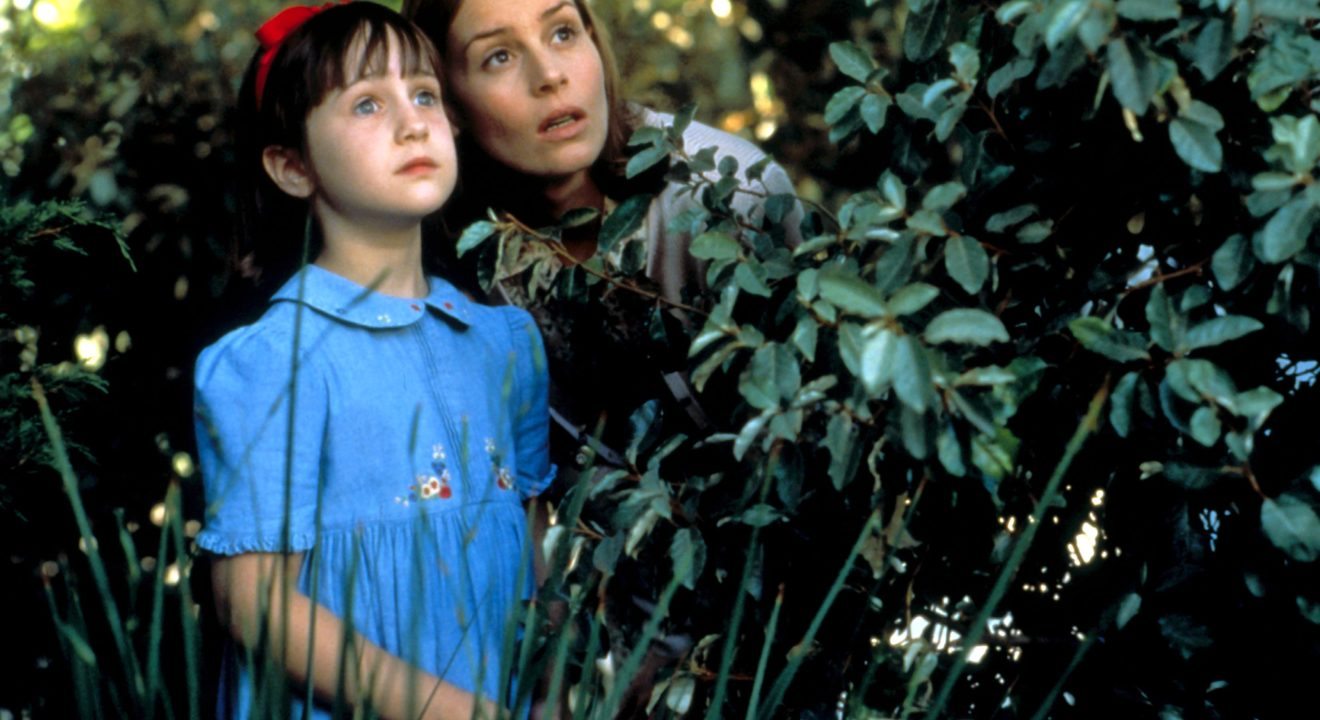Uncategorized February 24, 2017


From a young age Matilda, played by Mara Wilson, would walk herself to the library and read every book possible, she could do large multiplications in her head, and she possess the ability to move things with her mind. She was no ordinary girl living with an ordinary family.
Her parents, played by Danny DeVito and Rhea Perlman, constantly berate her, thinking she’s much younger than she is, and refuse to send her to school, even though she desperately wants to go. She’s forced to go to work with her father, where she realizes that he sells lemons.
It’s here that they meet Agatha Trunchbull, played by Pam Ferris, the dictatorial principal of a local school. When Matilda is enrolled, she realizes the tyrannical nature of the principal, but soon learns to love her teacher Ms. Honey, played by Embeth Davidtz.
She meets kids her own age, and becomes friends with them. But because the Trunchbull is so mean, they constantly fear what she might do to them. Matilda uses her powers for good, helping the helpless, encouraging those who don’t believe in themselves, and empowering Ms. Honey to take a stand.
While Matilda is thriving at school, she is stifled at home, and her family takes no interest in her, but only their illegal dealings, for which they are under FBI surveillance. She begins spending more and more time with Ms. Honey outside of school, where they both reveal their secrets to one another, including her relationship with the Trunchbull.
With more than one mad dash at the end, Matilda and Ms. Honey both have their happy endings, and for a child born into neglect and verbal abuse, she gets nothing less than she deserves. This is the beauty of the novel: that despite her circumstances, Matilda grew into a kind, smart, and beautiful girl. Rather than turn bitter at her childhood, she did the opposite and taught herself everything she needed to know about life. It shows the resilience of children and their ability to adapt to any situation.
But it is also careful to show the ridiculous antics of the antagonists, making sure the audience knows that because they are so ridiculous, they shouldn’t be taken seriously.
The movie is based on the beloved novel by children’s author Roald Dahl, and while he might not have been the most warming person, which shows in some of his characters, he sure knows how to write children’s literature.
The movie is a children’s movie, but also not. It’s a dark comedy that a little girl who withstood everything life kept throwing at her, including neglectful parents, a horrid teacher, and a crime ring her parents were involved in. It should come as no surprise that Danny DeVito not only starred in it, but also directed and co-produced it, considering he would go on to star in It’s Always Sunny in Philadelphia, which is the epitome of a dysfunctional family.
Because of this, there is concern over whether or not children should be watching the movie. While the movie is careful to show Matilda’s self-determined nature, she lives in depressing circumstances and these often overshadow the message of the film. Because of this, it’s important that parents sit down with their children and talk about the good and the bad of the film, to show them that the movie is not meant to be taken seriously, and what they see isn’t like real life.
The film was well received at the time of its release, although in the United States, it didn’t match its budget. It did better worldwide, and sales picked up once again when it was released on VHS home video. Rotten Tomatoes gives the movie a “fresh” 90% rating.
Sorry, no related posts found.